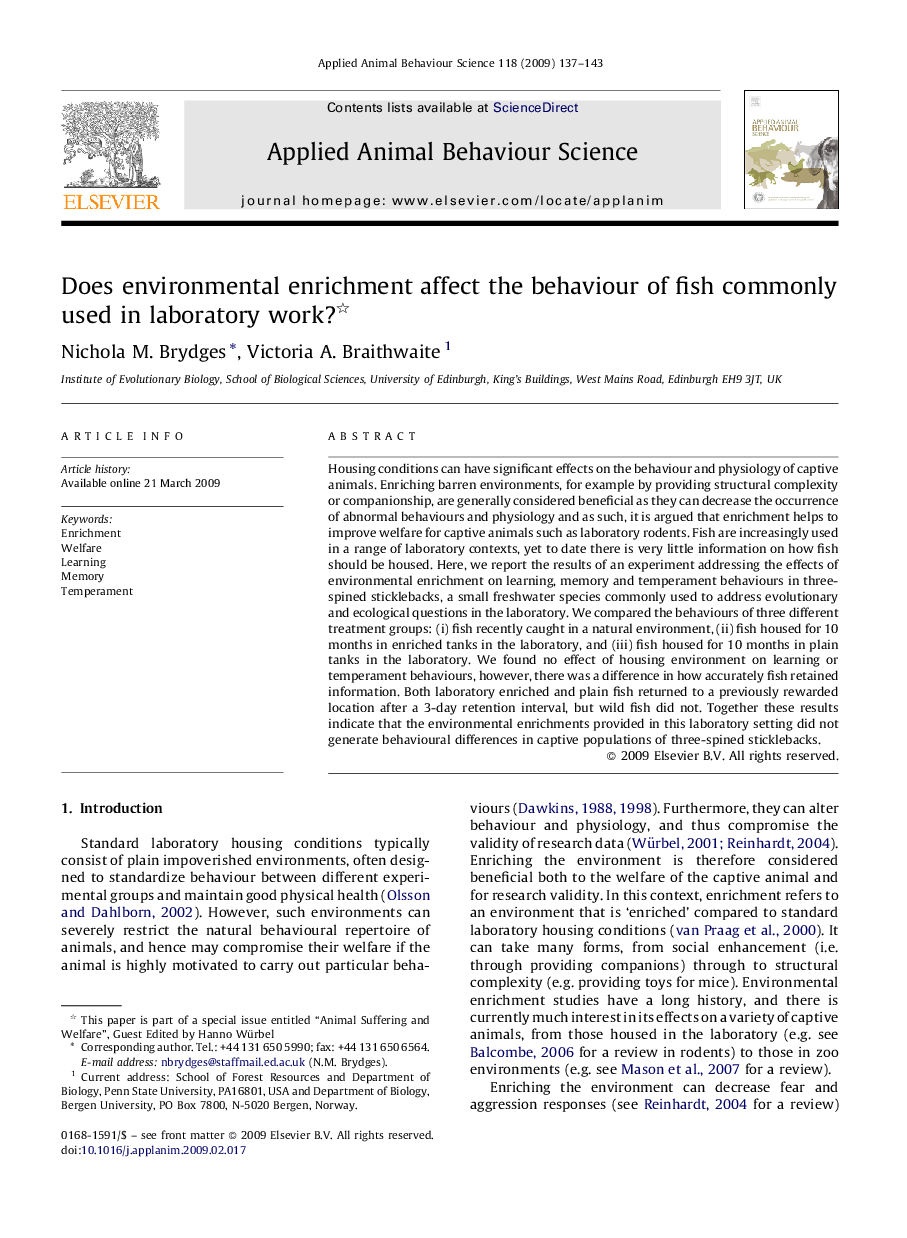| Article ID | Journal | Published Year | Pages | File Type |
|---|---|---|---|---|
| 4523557 | Applied Animal Behaviour Science | 2009 | 7 Pages |
Housing conditions can have significant effects on the behaviour and physiology of captive animals. Enriching barren environments, for example by providing structural complexity or companionship, are generally considered beneficial as they can decrease the occurrence of abnormal behaviours and physiology and as such, it is argued that enrichment helps to improve welfare for captive animals such as laboratory rodents. Fish are increasingly used in a range of laboratory contexts, yet to date there is very little information on how fish should be housed. Here, we report the results of an experiment addressing the effects of environmental enrichment on learning, memory and temperament behaviours in three-spined sticklebacks, a small freshwater species commonly used to address evolutionary and ecological questions in the laboratory. We compared the behaviours of three different treatment groups: (i) fish recently caught in a natural environment, (ii) fish housed for 10 months in enriched tanks in the laboratory, and (iii) fish housed for 10 months in plain tanks in the laboratory. We found no effect of housing environment on learning or temperament behaviours, however, there was a difference in how accurately fish retained information. Both laboratory enriched and plain fish returned to a previously rewarded location after a 3-day retention interval, but wild fish did not. Together these results indicate that the environmental enrichments provided in this laboratory setting did not generate behavioural differences in captive populations of three-spined sticklebacks.
